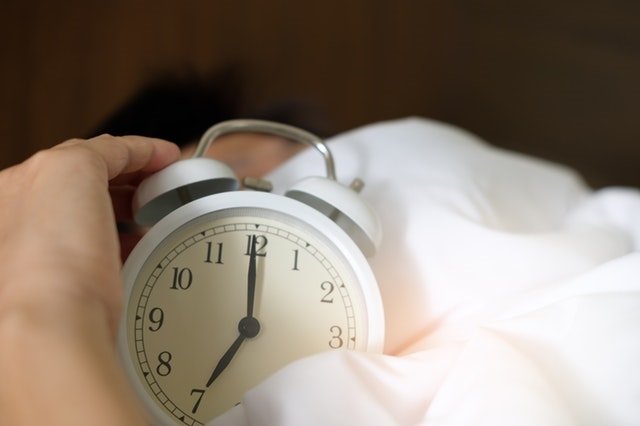
Many people have a busy life and not enough time to sleep at night.
While occasional sleep loss seems easy to handle, long-term sleep deprivation can greatly harm our health.
In two new studies, researchers found that sleep loss can affect both physical and mental health.
In one study led by the University of California, Berkeley, researchers showed that sleep-deprived brain can intensify and prolong the agony of sickness and injury.
Previously, scientists have found that about 66% of chronic pain patients suffer from long-term sleep disruptions.
In this study, the researchers found poor sleep can intensify people’s sensitivity to pain.
They examined uncomfortable levels of heat to the legs in healthy young adults.
They found when these people had insufficient sleep, the brain functions responsible for picking up pain signals, evaluating them, and activating natural pain relief were disrupted.
The researchers suggest that sleep deprivation would increase pain sensitivity.
According to them, sleep loss not only amplifies the pain-sensing regions in the brain but also blocks the natural analgesia centers.
The team then surveyed more than 230 adults of all ages nationwide to test the sleep-pain connection in more common daily-life scenarios.
They found that even small shifts in their sleep and wake patterns were linked to changes in pain sensitivity.
The results suggest that it is important to put sleep closer to the center of patient care, especially in hospital wards.
The study senior author is Matthew Walker, professor of neuroscience and psychology. It is published in the Journal of Neuroscience.
In another study, researchers found that sleep loss makes people feel lonelier and less likely to engage with others.
They showed sleep-deprived people avoid close contact in much the same way as people with social anxiety.
Moreover, even people who have a good sleep feel lonely after just a brief encounter with a person with sleep loss.
This suggests that sleep deprivation could lead to contagious loneliness.
This is the first study showing a two-way relationship between sleep loss and social isolation.
In the study, the team examined brain scans of sleep-deprived people as they viewed videos of strangers walking toward them.
They found brain activity in these people was similar to that when humans feel their personal space is being invaded.
In addition, sleep loss reduced activity in brain regions that normally encourage social engagement.
The researchers suggest that the less sleep you get, the less you want to socially interact. And other people will perceive you as more socially repulsive.
This is very harmful because loneliness could increase one’s death risk by almost 50%, much more than obesity.
Without enough sleep, loneliness will soon kick in. People become more isolated and have a higher risk of chronic health conditions.
The researchers suggest that it is important to sleep seven to nine hours a night. Good nights’ sleep could make you feel more outgoing and socially confident, which will attract others to you.
The study is led by Matthew Walker, professor of neuroscience and psychology. It is published in Nature Communications.
Copyright © 2019 Knowridge Science Report. All rights reserved.



